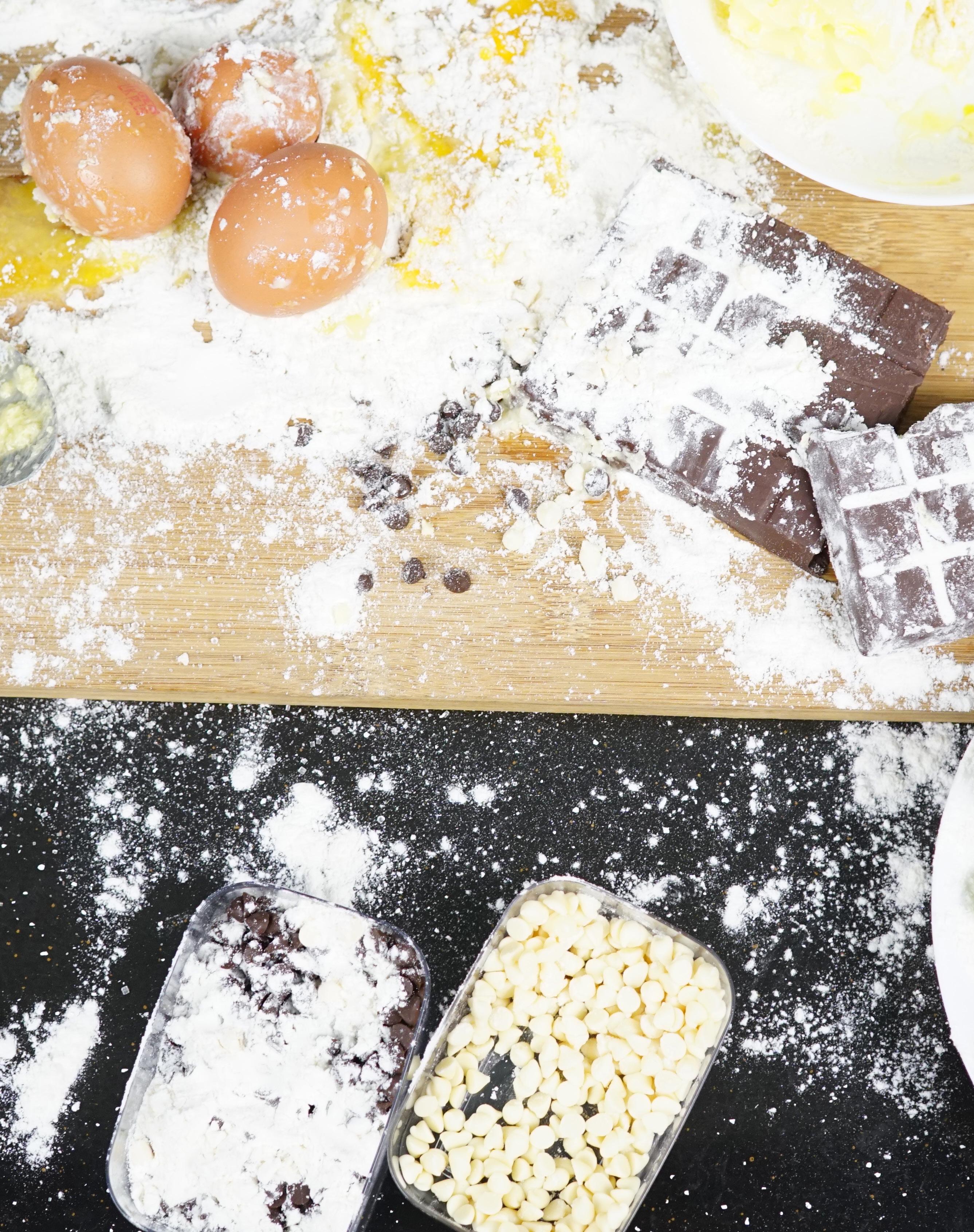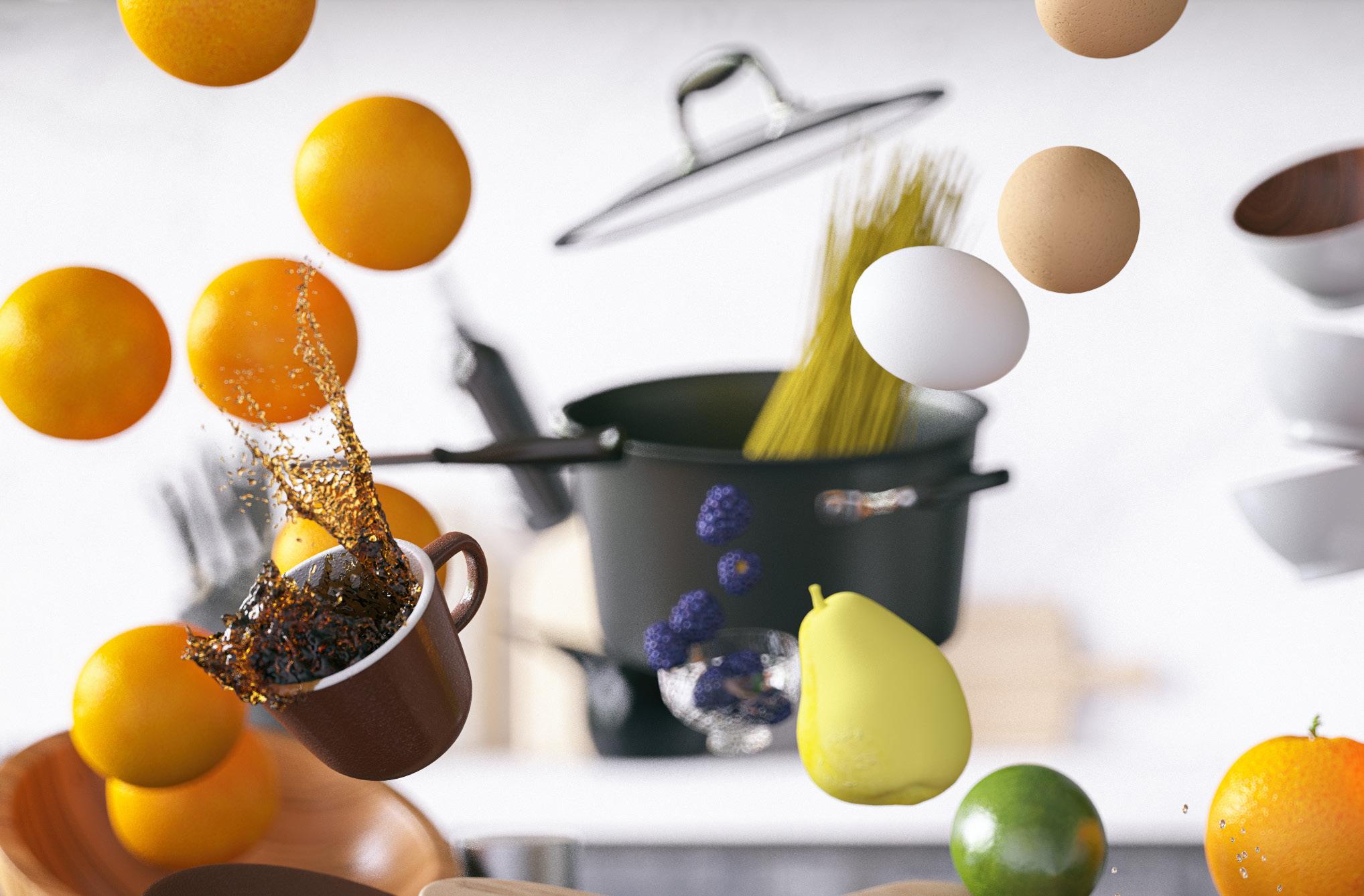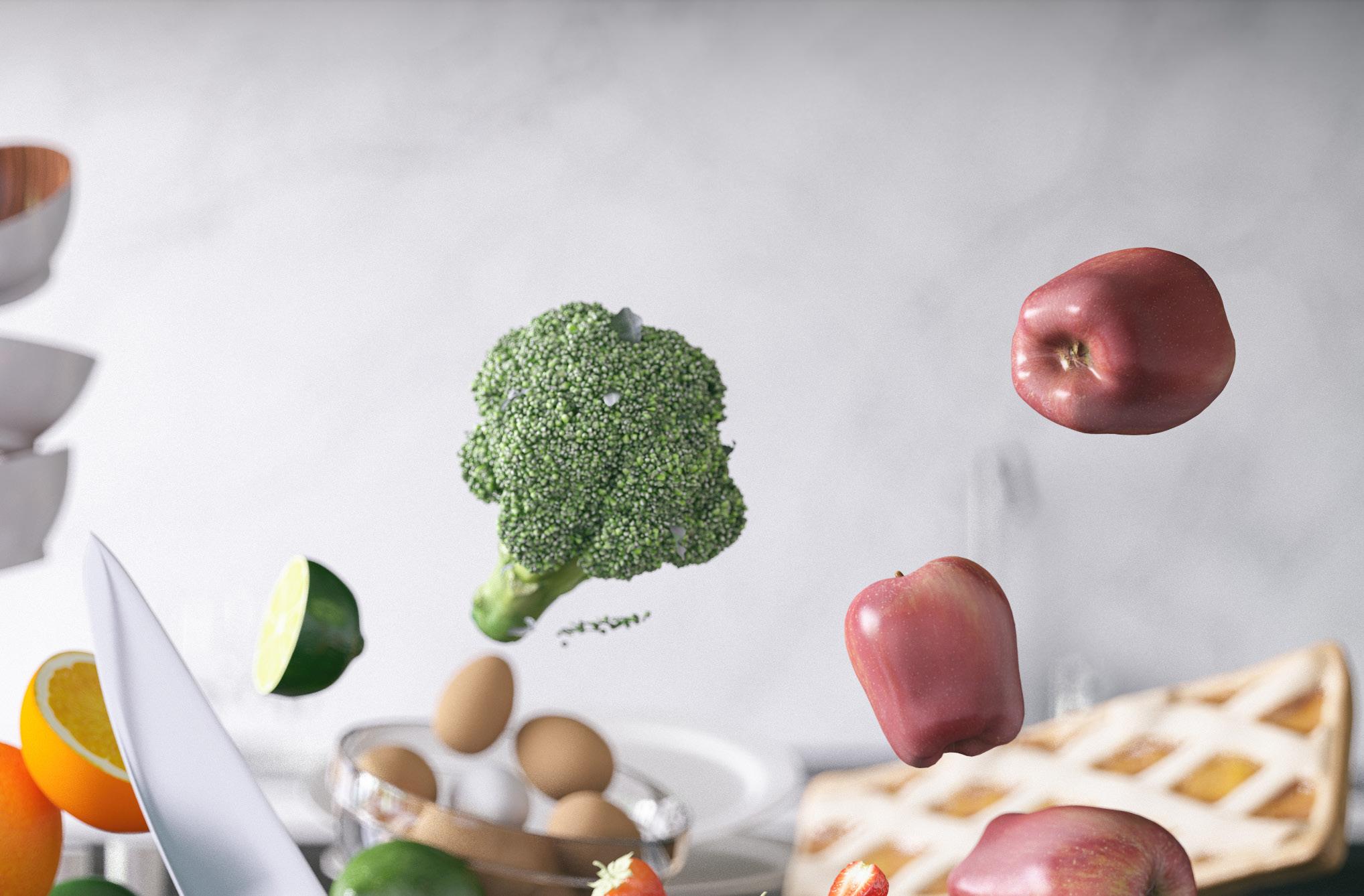
4 minute read
FOOD FOR THOUGHT
Embracing Disaster in the Kitchen
After a year of pandemic cooking, let your mistakes be lessons
Advertisement
By Malinda Meadows
“Quel désastre! It was bloody!” These were the words that came tumbling from Julia Child’s mouth in her kitchen in Provence. It was the 1970s, she was surrounded by a number of esteemed guests and she had just pulled a roast chicken from the oven. As her knife sliced into it, she realized it was massively undercooked. It was raw. It was bloody. It was a disaster.
Or was it?
By the time this article reaches print, we current-day non-chefs will have been grappling with the effects of a global pandemic for more than a year. Collectively, we’ve baked bread, we’ve made pasta from scratch, we’ve whipped sugar and water and coffee powder to create Dalgona coffees. We’ve baked cakes and pies along with tarts and Tarte Tatin. Some have attempted meals that take three hours, or even three days, perhaps in an effort to steady the hands or calm the internal purr of uncertainty this past year has brought.
This also means that there have been kitchen mistakes and mishaps—it comes with the territory. Incidences where bread refused to rise, cakes emerged from the oven stodgy, butter burned in the pan and perhaps one or two or more roast chickens suffered a fate similar to Julia’s. The fact of the matter is most of us aren’t chefs. Many of us perhaps didn’t even consider ourselves home cooks until a pandemic shifted our relationship with food and our abilities and the contents of our own kitchen.
Mistakes happen, even to chefs. But rack up enough of these mistakes in the kitchen and cooking can quickly turn from a feeling of joy to a feeling of failure. Scroll through flawless food images on social media or tune in to “Chef’s Table,” where perfectionism dominates the culinary discourse, and it’s no wonder we might be tempted to throw in the literal and metaphorical towel.
But before we have the chance to ruminate any further on mistakes and perfectionism, let’s get back to Julia.
On making mistakes in the kitchen, Julia said, “At first this broke my heart, but then I came to understand that learning how to fix one’s mistakes, or live with them, was an important part of becoming a cook.”
Cooking is indeed the method by which we feed ourselves and one another. It’s a vehicle for connection, a wonderful experiment of turning very little into something much more. But it’s easy to forget that it’s also a skill, one that isn’t acquired in a single night or over the course of a weekend. It’s the learning of how to fix the mistakes or move on that’s the important part.

When our cooking plans don’t work out, we shouldn’t automatically assume failure. In fact, we could afford to take a step back from perfectionism, to let our egos take a nap for a while. We could afford to cut ourselves a break after surviving a year without even a modicum of predictability.
With some gentle reframing, our mistakes can become valuable lessons. Perhaps a little less flour next time will help that bread rise. The next time we sauté, we’ll remember to add a little oil to the pan to prevent the butter from burning. Angling the legs of the chicken toward the back of the oven, where it’s usually hottest, will help our chickens roast more evenly. And in making these small adjustments, we’ll reintroduce some predictability back into our lives, if only in the form of a crusty loaf of bread or well-roasted chicken.
If accepting mistakes as a chance for growth is still a struggle, it might also be comforting to know when exactly it was that Julia undercooked that chicken in Provence.
The mistake was made after she attended the renowned culinary school Le Cordon Bleu; after she had written her seminal cookbook Mastering the Art of French Cooking; after she had soared to national fame with her TV show. As it turns out, even the professionals have an off night.
Returning to that “off night,” the esteemed guests at Julia’s table were none other than American food icon James Beard, the witty and compelling food writer MFK Fisher and a few other notable gastronomes. Yet these esteemed guests were also her dear friends. The response to the roast chicken wasn’t really likened to a disaster in the truest sense of the word. They all laughed, including Julia, who was well-known for her boisterous and infectious personality. Julia’s husband, Paul, took the delay as an opportunity to pour more wine for the table.
The group eventually ate, some two hours later than expected (it was a rather big chicken, after all), but in the end, everything worked out. The wine continued to flow. They were tucked together in good company—something many of us are desperately yearning for a return to—which is the most real thing and all that really matters.
Perhaps there is a sort of sovereignty in not caring so much in the kitchen, in banishing perfectionism, in dialing down the performance. Perhaps there is sovereignty in treating ourselves like a good friend who is trying their best to prepare a nice dinner for those around the table.
This, if I were to choose, would be just my kind of disaster.
Malinda Meadows is a freelance writer based in Columbus but will travel the world for a good meal. She loves handmade pasta, Swedish music and the first day in a new city. Find more of her writing at malindainthesnow.com or follow along on Instagram @malindainthesnow.











